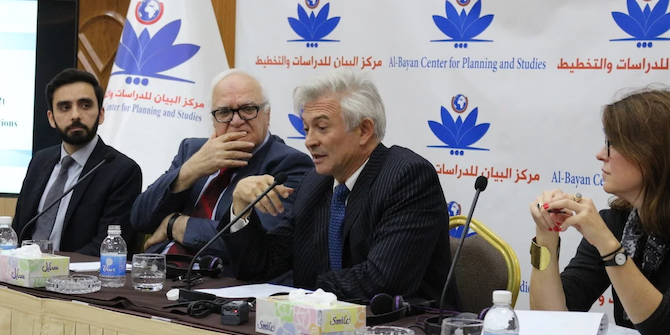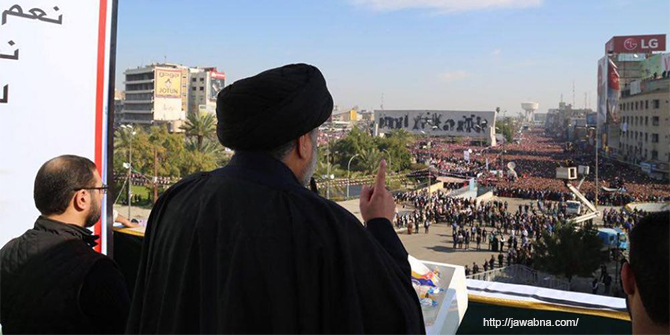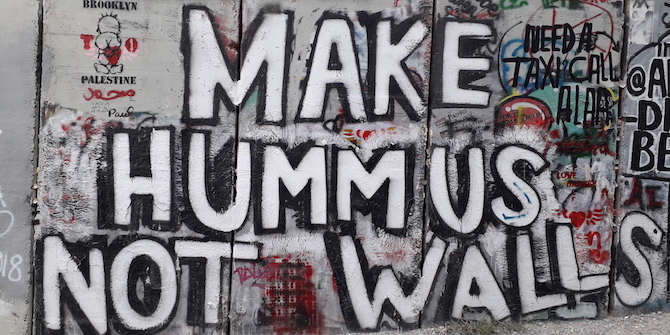by Jamal Abdullah

After the Paris attacks, the world seems to be rushing to limit the activities of extremist organisations that have been able to kill hundreds of civilians. World powers have now realised that they have to act more effectively and take the most efficient measures to stop the expansion of extremists and prevent their incursion in capitals of the EU and even the US.
The question to ask now is how will the international community deal with this phenomenon: Will world powers repeat a ‘War on Terror’ scenario or have they learned that military action alone, and wars fought in Afghanistan and Iraq, only led to more extremism and fanaticism?
Twelve years after the start of the War on Terror, international alliances have not succeeded in eradicating terrorism. On the contrary, violent jihadist groups have expanded to wider geographic areas, with branches in the Arabian Peninsula, North Africa, Asia and other areas forming its intercontinental foundation.
The growth of extremist groups with multiple ideological backgrounds is another negative consequence of the War on Terror. With such a track record, will the international powers succeed in eliminating terrorism, or at least weaken Da’esh, after the attacks on the heart of the French capital?
There may be a better way. Several leaders of Arab Gulf states have presented a vision for dealing with the Middle East crises, especially the phenomenon of extremist organisations, which may develop into terrorist organisations.
The late King of Saudi Arabia, Abdullah bin Abdulaziz, and the Emir of Qatar, Sheikh Tamim bin Hamad have repeatedly stressed the need to address the crises and problems afflicting the region by searching for their original causes, and then working on fundamental solutions and seeking to eradicate the roots.
In August 2014, King Abdullah bin Abdulaziz Al Saudin called on the international community to unite and collaborate in combating terrorism and eradicating its roots. He went further by warning Europe and the US that terrorism would soon reach their countries. King Abdullah Al Saud based his prediction on his experiences during the 1990s and 2000s. In particular, disastrous results appeared evident after the US invasion of Iraq in 2003, which led to the fragmentation of state institutions and embrace of sectarianism by many parties.
The Qatari vision sees the solution in ‘the enforcement of principles of justice, security and peace for all peoples of the region’. This solution is derived from the United Nations Charter. It needs to be implemented with the cooperation of all the components of the international community, where every country abides by its responsibilities.
The perspective provided by Qatar considers that military solutions alone are not enough to defeat terrorism, because it has become a thought and a doctrine, turned into an ideology, and therefore, it is necessary to fight it with thought as well.
Coalition military operations may be able to kill leaders of extremist and terrorist organisations, but they cannot eliminate organisations or extremist ideology. Global decision makers should pause for a moment to think rationally and re-draw their strategic plans. Action is needed to defuse the despair and frustration in the hearts of the global youth in general and Arab youth in particular. The international community, with all its institutions, must support Arab youth to achieve their dreams of liberty and the preservation of dignity, justice and security in their communities.
Another War on Terror, might enhance the survival of dictatorships and repressive regimes that have contributed to the formation of extremist groups, some of which turned into terrorist organisations. This in turn leads into a fundamental issue, which Qatar has warned about, that the following two options should be rejected by the international community: ‘The Arab peoples have only two choices: either to accept authoritarian repressive regimes or to accept the authority of terrorist extremist organisations.’
The international community must shoulder its responsibilities, admit its mistakes and work to avoid them. Looking at Syria, the Qatari vision considers the death and displacement of much of a nation by a dictatorial regime over five years as a crime and a failure for the international system.
On the other hand, the nuclear deal signed by the P5+1 with Iran in July 2015, after excluding the GCC from participating in the negotiating rounds, has given Tehran official international recognition of the right to develop its nuclear programme. This made Iran more powerful within the framework of parallel powers in the region. Accordingly, the Gulf states, in turn, will seek to restore the regional balance.
Dialogue is one of the ways to solve regional crises and eradicate extremism. Therefore, decision makers should understand that the solutions to the regional crises are in their hands. All parties should be aware that such dialogue, especially between Iran and the GCC states, would be based on foundations of equality and without arrogance, specific preconditions or selective requirements being imposed on the dialogue table.
If we were to be convinced that the causes of extremism that lead to terrorist acts are despair and frustration, it can be concluded that extremism and terrorism are not only born in the Middle East. They are also likely to form in any region in the world that suffers from periods of marginalisation and exclusion, including some communities in Europe and the USA. Therefore, it is important to correctly integrate people of immigrant backgrounds living in poor suburbs in Western countries, in order to avoid any formation of extremist groups.
 Dr Jamal Abdullah is Researcher and Head of the Gulf Studies Unit at Al Jazeera Centre for Studies (AJCS). He is currently Visiting Researcher at the MEC, working on his research looking at the Gulf after the arrival of King Salman to power in Saudi Arabia.
Dr Jamal Abdullah is Researcher and Head of the Gulf Studies Unit at Al Jazeera Centre for Studies (AJCS). He is currently Visiting Researcher at the MEC, working on his research looking at the Gulf after the arrival of King Salman to power in Saudi Arabia.







If someone is serious about to get the turrrists, why doesn’t someone go to the root of the cause?
Why not eliminate the turrrists financing.
Who pays the turrrist’s bills?
PBS Frontline documentary “House of Said”: